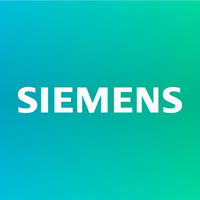Siemens' Bold Move: Acquiring Altair Engineering for $10 Billion
November 1, 2024, 4:55 am
Siemens has set the stage for a transformative leap in the industrial software landscape with its recent acquisition of Altair Engineering for a staggering $10 billion. This strategic maneuver not only solidifies Siemens' foothold in the competitive realm of technology but also positions it as a frontrunner in the burgeoning field of artificial intelligence (AI) and computational science.
The deal, announced on October 31, 2024, comes with a price tag of $113 per share for Altair's shareholders, representing a 19% premium over the company's closing price just days before the announcement. This acquisition is more than just a financial transaction; it’s a statement of intent. Siemens aims to enhance its portfolio, creating what it describes as the "world’s most complete AI-powered design and simulation portfolio."
Siemens has been on a journey to bolster its industrial software capabilities for over 15 years. This acquisition is a logical next step, akin to adding a powerful engine to a well-oiled machine. By integrating Altair’s strengths in simulation, high-performance computing, and data science, Siemens is poised to accelerate the digital transformation of its customers. The synergy between the two companies is palpable, promising to democratize access to advanced simulation tools across various industries.
The potential for revenue growth is significant. Siemens anticipates an 8% increase in its digital business revenue, adding approximately €600 million to its existing €7.3 billion digital revenue. This growth is expected to stem from cross-selling opportunities and leveraging Siemens' extensive global footprint. The company projects that Altair will contribute over $500 million annually in revenue in the mid-term, with long-term expectations exceeding $1 billion per year.
Cost synergies are also on the horizon. Siemens expects to achieve an EBITDA impact of over $150 million annually by the second year post-closing. This financial strategy underscores Siemens' commitment to maintaining a strong balance sheet while pursuing growth opportunities. The acquisition will be fully financed through Siemens' existing resources, showcasing its robust financial health.
The implications of this acquisition extend beyond mere numbers. Altair Engineering, founded in 1985, has evolved from a startup in Detroit to a global leader in engineering software. Its innovative culture and extensive customer base in sectors like aerospace, automotive, energy, and finance align seamlessly with Siemens' vision. This merger of two complementary leaders in engineering software is akin to merging two powerful rivers, creating a vast and unstoppable force in the industry.
As industries increasingly adopt AI technologies, the demand for advanced simulation tools is expected to surge. Siemens recognizes this trend and is strategically positioning itself to meet the growing needs of its customers. The integration of Altair’s capabilities will enable Siemens to offer enhanced simulation expertise, reducing time-to-market and accelerating design iterations. This is not just about keeping pace; it’s about leading the charge into a future where AI and simulation are at the forefront of industrial innovation.
The acquisition also marks a significant shift in Siemens' focus towards software, a move that aligns with its broader strategy to enhance profitability. In recent years, Siemens has expressed its intent to pursue larger acquisitions, particularly in the software domain. The Altair deal, in this context, is a strategic masterstroke, allowing Siemens to tap into a highly consolidated market without triggering antitrust concerns.
Siemens has already made strides in the software arena, with products that cater to smart infrastructure and data centers. The company is keen on offsetting declines in other revenue streams by capitalizing on the growth of its software offerings. This acquisition is a crucial piece of that puzzle, enabling Siemens to enhance its product lines and drive profitability.
The closing of the transaction is expected in the second half of 2025, pending customary conditions. This timeline allows Siemens to carefully integrate Altair’s operations and culture into its own, ensuring a smooth transition that maximizes the potential of both companies.
In conclusion, Siemens' acquisition of Altair Engineering is a bold and strategic move that positions the company for future success in the rapidly evolving landscape of industrial software and AI. By combining their strengths, Siemens and Altair are set to redefine the possibilities of simulation and design, creating a powerful synergy that will benefit customers across various industries. This acquisition is not just a financial transaction; it’s a transformative step towards a more innovative and digitally driven future. As Siemens embarks on this new chapter, the industry will be watching closely, eager to see how this merger will shape the future of engineering software.
The deal, announced on October 31, 2024, comes with a price tag of $113 per share for Altair's shareholders, representing a 19% premium over the company's closing price just days before the announcement. This acquisition is more than just a financial transaction; it’s a statement of intent. Siemens aims to enhance its portfolio, creating what it describes as the "world’s most complete AI-powered design and simulation portfolio."
Siemens has been on a journey to bolster its industrial software capabilities for over 15 years. This acquisition is a logical next step, akin to adding a powerful engine to a well-oiled machine. By integrating Altair’s strengths in simulation, high-performance computing, and data science, Siemens is poised to accelerate the digital transformation of its customers. The synergy between the two companies is palpable, promising to democratize access to advanced simulation tools across various industries.
The potential for revenue growth is significant. Siemens anticipates an 8% increase in its digital business revenue, adding approximately €600 million to its existing €7.3 billion digital revenue. This growth is expected to stem from cross-selling opportunities and leveraging Siemens' extensive global footprint. The company projects that Altair will contribute over $500 million annually in revenue in the mid-term, with long-term expectations exceeding $1 billion per year.
Cost synergies are also on the horizon. Siemens expects to achieve an EBITDA impact of over $150 million annually by the second year post-closing. This financial strategy underscores Siemens' commitment to maintaining a strong balance sheet while pursuing growth opportunities. The acquisition will be fully financed through Siemens' existing resources, showcasing its robust financial health.
The implications of this acquisition extend beyond mere numbers. Altair Engineering, founded in 1985, has evolved from a startup in Detroit to a global leader in engineering software. Its innovative culture and extensive customer base in sectors like aerospace, automotive, energy, and finance align seamlessly with Siemens' vision. This merger of two complementary leaders in engineering software is akin to merging two powerful rivers, creating a vast and unstoppable force in the industry.
As industries increasingly adopt AI technologies, the demand for advanced simulation tools is expected to surge. Siemens recognizes this trend and is strategically positioning itself to meet the growing needs of its customers. The integration of Altair’s capabilities will enable Siemens to offer enhanced simulation expertise, reducing time-to-market and accelerating design iterations. This is not just about keeping pace; it’s about leading the charge into a future where AI and simulation are at the forefront of industrial innovation.
The acquisition also marks a significant shift in Siemens' focus towards software, a move that aligns with its broader strategy to enhance profitability. In recent years, Siemens has expressed its intent to pursue larger acquisitions, particularly in the software domain. The Altair deal, in this context, is a strategic masterstroke, allowing Siemens to tap into a highly consolidated market without triggering antitrust concerns.
Siemens has already made strides in the software arena, with products that cater to smart infrastructure and data centers. The company is keen on offsetting declines in other revenue streams by capitalizing on the growth of its software offerings. This acquisition is a crucial piece of that puzzle, enabling Siemens to enhance its product lines and drive profitability.
The closing of the transaction is expected in the second half of 2025, pending customary conditions. This timeline allows Siemens to carefully integrate Altair’s operations and culture into its own, ensuring a smooth transition that maximizes the potential of both companies.
In conclusion, Siemens' acquisition of Altair Engineering is a bold and strategic move that positions the company for future success in the rapidly evolving landscape of industrial software and AI. By combining their strengths, Siemens and Altair are set to redefine the possibilities of simulation and design, creating a powerful synergy that will benefit customers across various industries. This acquisition is not just a financial transaction; it’s a transformative step towards a more innovative and digitally driven future. As Siemens embarks on this new chapter, the industry will be watching closely, eager to see how this merger will shape the future of engineering software.

